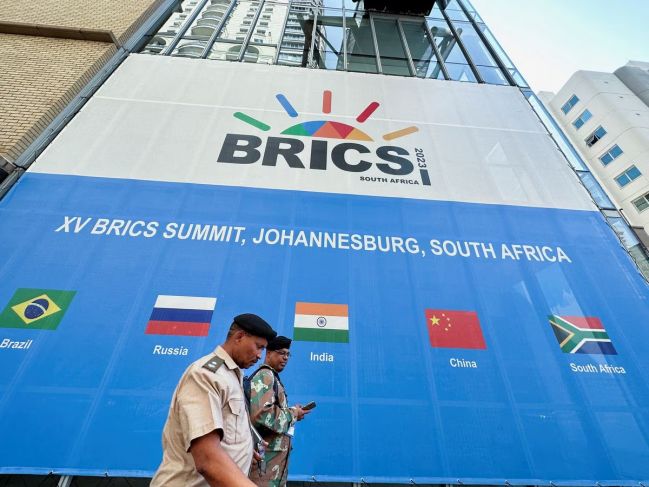The BRICS (Brazil, Russia, India, China, and South Africa) is an acronym that represents five emerging economies with potential for growth and development. These countries, spanning across four continents, have come together to form an alliance that aims to reshape the global economic and political landscape.
Since its inception in 2009, the BRICS has made significant strides in expanding its influence, both regionally and globally.
At the recent BRICS Summit in South Africa, the Alliance announced that it is inviting Saudi Arabia, Argentina, Ethiopia, Iran, Egypt, and the United Arab Emirates to join on January 1st, 2024.
One of the primary reasons behind the BRICS expansion is the desire to challenge the dominance of Western powers in global affairs.
Historically, the United States and Europe have held significant influence over international institutions such as the World Bank and the International Monetary Fund (IMF).
The BRICS countries, with their growing economies and large populations, have recognized the need to have a greater say in these institutions.
By expanding their alliance, they aim to create a counterbalance to Western dominance and ensure that their interests are adequately represented.
By working together, they hope to leverage their resources to foster economic growth and development. The BRICS countries have already established various initiatives, such as the New Development Bank (NDB) and the Contingent Reserve Arrangement (CRA), to promote infrastructure development and provide financial assistance to member countries. Through these initiatives, the BRICS aims to create a more equitable and inclusive global economic order.
However, despite their collective hope to make a major economic impact globally, most of these countries face significant economic and political challenges currently limiting what they can really offer the global economy. China has severe economic problems, Russia’s invasion of Ukraine has it bogged down suffering severe economic sanctions, Iran is also sanctioned, Ethiopia is highly unstable, Egypt remains a major den of corruption, and Argentina sinks from one economic disaster to another.
The BRICS countries collectively represent a significant portion of the world's population, natural resources, and military capabilities especially in manpower. Their expanding influence within their regions, together with Russia and China’s global network of dictatorships and authoritarian partners, challenges the traditional power dynamics and provides an alternative model of governance. This shift in power has already led to a re-evaluation of global alliances and partnerships, with many countries seeking closer ties with the BRICS.
However, the potential BRICS expansion also faces other challenges and limitations. To start the member countries have diverse political systems, economic structures, and cultural backgrounds. These differences can sometimes hinder effective cooperation and coordination especially when it comes to maintaining economic and political sovereignty.
Additionally, the BRICS countries face internal challenges such as corruption, poverty, relatively small consumer markets and relatively less access to capital, lack of human rights and social unrest. These issues can undermine their credibility and hinder their ability to project influence globally.
The BRICS expansion represents a potentially new era of global influence. These emerging economies have determined that they can challenge Western dominance and reshape the global economic and political order. By expanding their alliance, the BRICS countries aim to enhance their economic cooperation, promote regional stability, and shift the balance of power from the West to the East.
While they face challenges and many limitations, the BRICS countries have the potential to bring some more balance to the global order. As the world continues to evolve, the BRICS expansion could well play an interesting role in shaping international relations.
Keep reading: Nicaragua and the Jesuits
Edición: Fernando Sierra
Proyectos realizados en el país tendrán incentivo fiscal de 30 % del ISR
La Jornada Maya
El célebre “Jefe Ratonero del Gabinete” ha servido a seis primeros ministros y se mantiene como figura entrañable del poder británico
Ap
El plan urbano propone una visión participativa y sostenible, abierta a ajustes mediante consulta ciudadana
Rosario Ruiz Canduriz
Comparsas, batucadas y carros alegóricos animaron el arranque; saldo blanco y amplia participación ciudadana
La Jornada Maya
